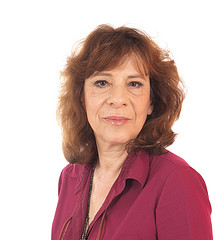Governments, the World Bank, the United Nations –– all important organizations –– make grand plans to change societies from the top down. Legalese, policy-speak, handshakes and conferences result in action plans, but getting talk into action is a tough business for these big groups, especially when working in regions with shaky political regimes.
One Israeli skilled in policy and land-use law has a calling to save the Mediterranean Sea from development and bureaucracy from another direction, the bottom up.
Prof. Rachelle Alterman from the Technion-Israel Institute of Technology is taking on the challenge of turning complicated UN directives and local laws and policies into action to shape the future of the Mediterranean.
She has gotten 11 partner organizations from Mediterranean countries to help make local laws connect with UN goals. With €4.3 million in EU funds over three years, she will lead Mare Nostrum, a collaborative international project under the UN’s Barcelona Convention designed to bridge legal gaps concerning human development along the Mediterranean coast.
Mare Nostrum will include people from Malta, Greece, Israel, Jordan and Spain. Representatives from Germany, Turkey and Italy will offer advice.
Mare Nostrum is the Latin nickname the Romans used for the Mediterranean Sea. Much has changed on its shores since Caesar built Caesarea north of Tel Aviv. Coastlines are being eroded from residential, hotel and port construction.
 Prof. Rachelle Alterman is shaping the future of the sea.
Prof. Rachelle Alterman is shaping the future of the sea.
Participants at a recent meeting in Israel agreed that human development and uncontrolled construction all along the seacoast is the biggest challenge facing Mediterranean Basin nations that want to protect their biggest asset for generations to come.
"The Mediterranean Sea has for millennia served the people living on its shores as a precious common resource," says Alterman, the founder and coordinator of Mare Nostrum. “Yet despite decades of efforts to protect it, a complex mosaic of legal and institutional regimes has prevented their full implementation.”
"The project's primary goal is to contribute to bridging the gap between the ideals of coastal zone management and its actual effects on the ground at the local, national and cross-border levels,” she adds.
Goals to save the sea
There will also be socioeconomic and environmental sustainability goals to the project, as well as protecting future people from natural and manmade hazards.
Over the next three years she would like to create a toolbox of legal and institutional instruments that local governments and non-profit organizations can use to fight uncontrolled development, as well as alternatives for when illegal development has already taken place.
There are high rates of illegal development going on in Southern Greece, Italy and now Turkey, she says. Alterman is suggesting compromises with landowners, which might involve compensation.
She plans on activating the public using imaging systems to show stakeholders the acute problem of development along the sea, and how local groups and individuals can stop it.
And she will help use model towns, like Haifa in Israel and Kavala in Greece, to assess how local groups are implementing the toolbox. These will be case studies to look at after three years have gone by.
Israel is one of the most densely populated countries in the Mediterranean region, says Alterman. “It is very dense, and therefore our challenges may be the toughest.”
A sea-change of progress?
Israel was the first country in the region to develop advanced coastline development laws before the UN required them in 2004. But like other nations Israel needs help implementing coastline laws so that they work.
Some 30 representatives from government, research institutes, cities, ports and NGOs met in Israel for four days in Haifa, a port city with its own draw-dropping coastal vista. Mare Nostrum will fulfill the UN specifics outlined in the Integrated Coastal Zone Management plan (ICZM).
"We found that there is a big disparity between ICZM principles and the situation in reality," said Alterman, an internationally acclaimed go-to person for land-use planning and law who is also founding president of the International Academic Association on Planning, Law and Property Rights.
“It is difficult to overcome the expectations of private landowners without the introduction of innovative instruments,” she notes, summing up that there are major differences between how the authorities in different countries shape and enact laws.
Over the next three years she hopes to be able to connect the dots, and the laws, and report a sea-change of progress for putting manmade development in its rightful place on the Mediterranean Sea.